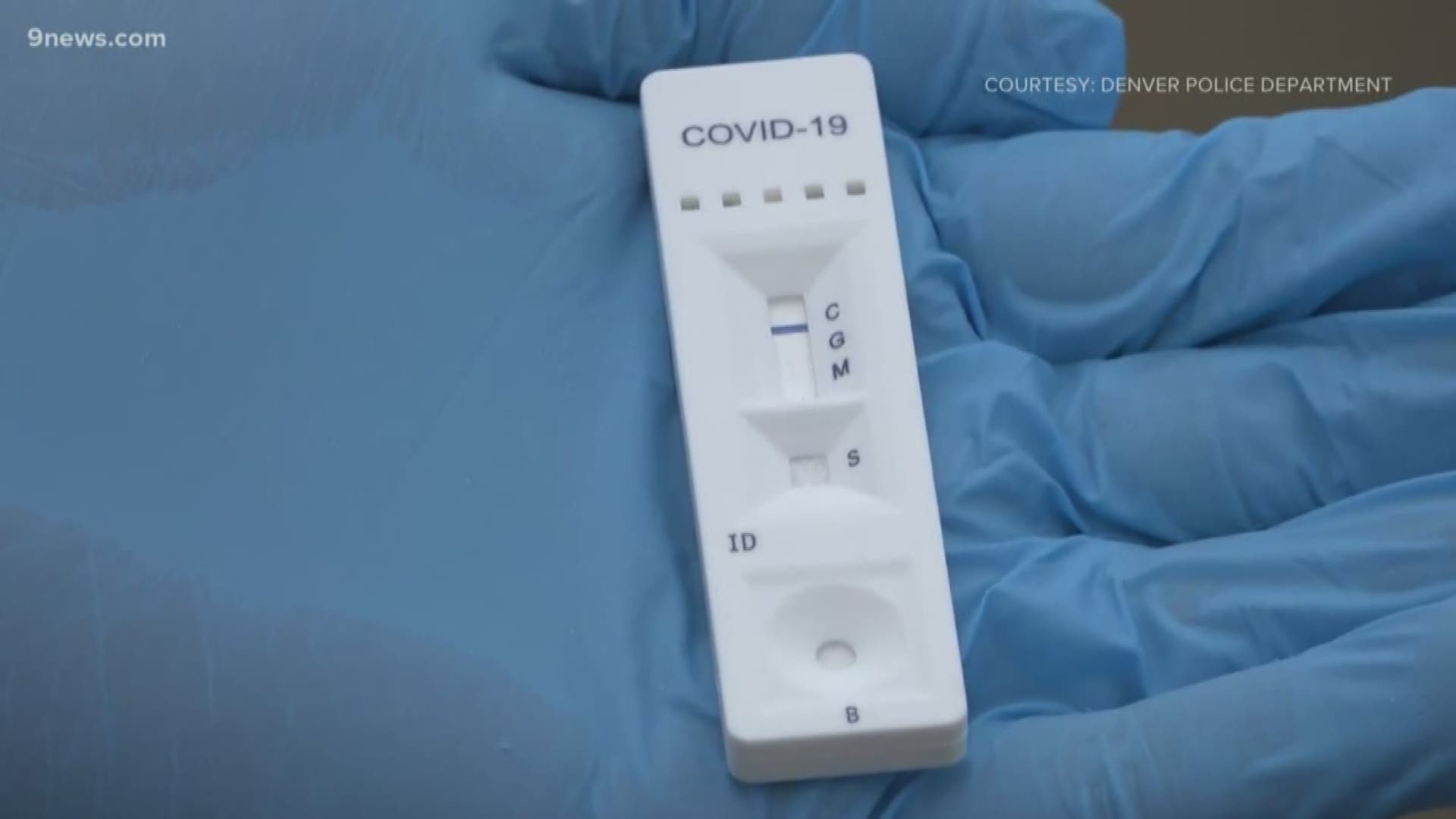DENVER — Aytu Bioscience in Englewood, Colo. recently got approval from the FDA to ship its newly developed COVID-19 test that provides results in less than ten minutes. Many tests have taken days, sometimes two weeks to provide results, complicating efforts to stop the spread.
The company has 100,000 tests ready to ship across the country though it’s unclear how many tests in that original shipment will remain in Colorado. Aytu says it has another 500,000 on the way from the manufacturer.
Denver’s Department of Public Safety placed an early order and picked up 2,750 of the tests for its first responders on Thursday.
“I will tell you that 2,700 is a great number to me because we started off the morning with zero,” said the department’s executive director Murphy Robinson. “This is going to become revolutionary when it comes to fighting the spread.”
It's better than nothing. But like the rest of the state, first responders in Denver will still have to show symptoms before getting tested, even if they think they've been exposed. Robinson says he hopes to test as many people as possible in the coming weeks depending on test availability.
Several companies are now distributing these types of tests and they can’t come soon enough. After potential exposure, first responders currently sit out work in isolation or get back to serving the public, risking further spread."
“We’ve got to carry on as a society as best we can. Police departments and fire departments, they can’t take time off. We need them more than ever," said Aytu CEO Josh Disbrow, who is fulfilling orders to agencies of all sizes right now. “But we also have orders from major academic medical centers, university research hospitals, private hospitals and physician practices.”
RELATED: 'He'll be missed': 41-year-old El Paso County deputy dies after experiencing symptoms of COVID-19
Again, it’s unclear how many of these tests are staying in Colorado. The Colorado Department of Public Health and Environment said Thursday that it does not know when more tests could be distributed in the state. But there are multiple companies working to deliver rapid tests desperately needed across the country.
“Those are the folks on the front line. If they're not there to serve us, then nobody's showing up,” said Robinson. “And so we have to make sure we protect the integrity of their health because if we don't we'll have an entirely different crisis.”

